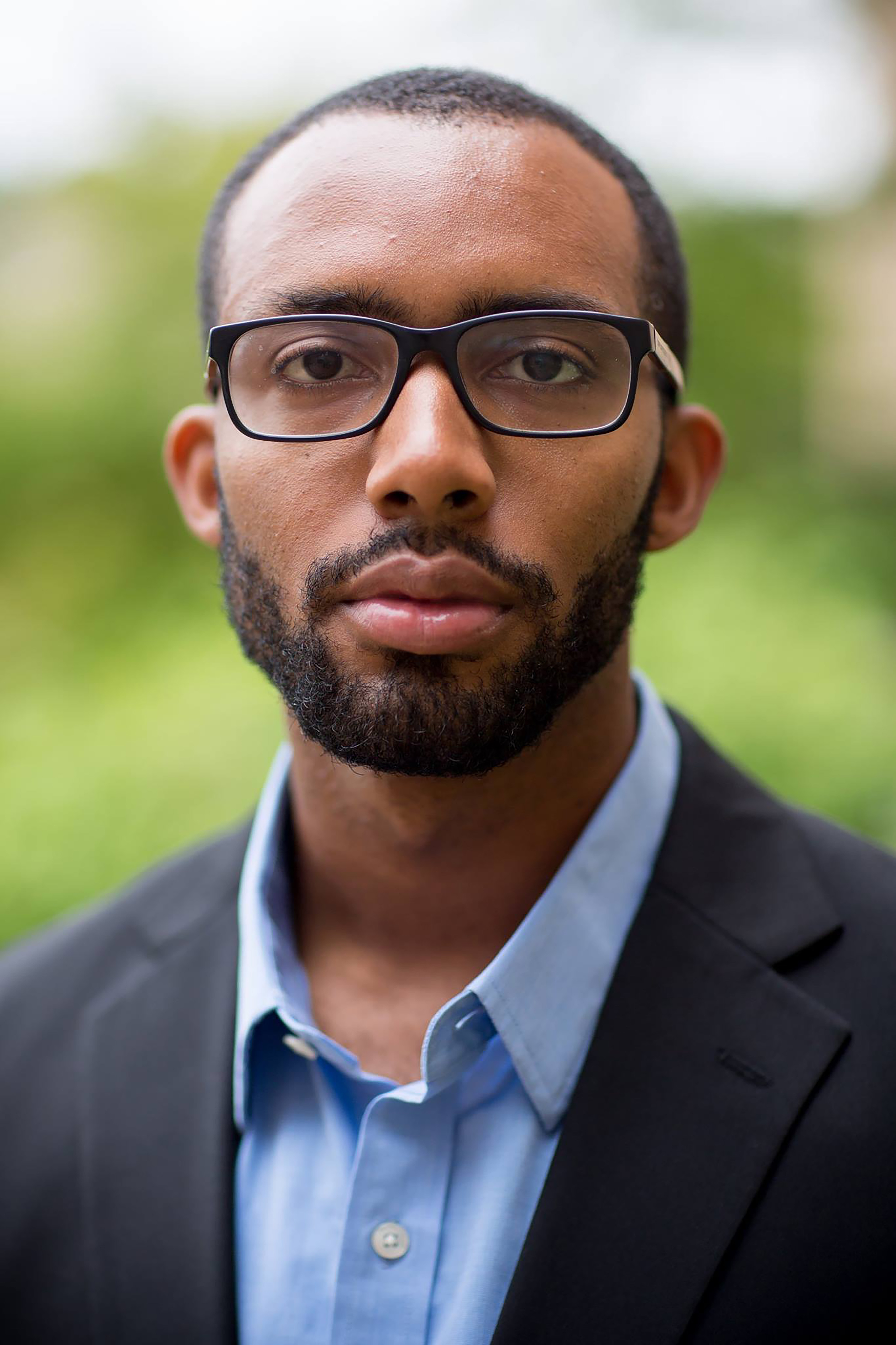
Joseph Earl Thomas, a Ph.D. student in English
Courtesy of Notre Dame University
Monday, August 17, 2020
By Jane Carroll
Joseph Earl Thomas was not much of a reader as a child growing up in Northeast Philadelphia.
“Most of my life was filtered through ideals of masculinity in which physical prowess was the only kind of knowledge that was acceptable or would be tolerated,” says Thomas, who is a Ph.D. student in English.
Ironically, he came to reading and writing thanks in part to many hours spent playing video games. “These were sprawling fantasy/adventure games that required you to read a lot of materials and make decisions based on characters’ personalities,” Thomas says.
Thomas explores his childhood in a memoir-in-progress, written in the third person, called Reality Marble. An excerpt from the book won the 2020 Chautauqua Janus Prize, which recognizes an emerging writer’s single work of short fiction or nonfiction. The contest judge, writer Hilary Plum, said the piece “miraculously recalls childhood’s deep ways of knowing.”
The memoir’s title comes from “Fate/Stay Night,” a 24-episode anime series that aired in Japan in 2006, and refers to the construction of a particular type of reality. “There is a character in the series who, as a child using emotional reasoning, is able to overcome an adult version of himself that is cast as hard-reasoning and nefarious,” says Thomas. “It seemed like a good representation of what I’m trying to do in the memoir.”
In addition to video games and anime, Thomas also was obsessed with vampires as a kid. “Of all the mythical beings, I think vampires were the most interesting to me, especially during puberty, because so much of the vampire myth has to do with sexuality and power.”
He began writing at a young age but left it behind during his teen years. “I think especially in the American patriarchal framework, fantasy and the imagination are seen as childlike,” he says. “I stopped taking it seriously for a while—I didn’t see it as an enterprise that would be important in any way, but I came back around to it later on.”
Thomas’s path to Penn’s doctoral program was a winding one. After high school, he took classes at Community College of Philadelphia and enrolled in a training program to become a physician’s assistant, but financial stresses—including working four jobs—made it difficult to continue. At a friend’s suggestion, he signed up with the Army National Guard, trained as a medic, and recently completed a 13-year period of service. Along the way he earned a bachelor’s degree in biology at Arcadia University and an MFA in prose writing from Notre Dame University.
I think especially in the American patriarchal framework, fantasy and the imagination are seen as childlike. I stopped taking it seriously for a while—I didn’t see it as an enterprise that would be important in any way, but I came back around to it later on.
Penn appealed to Thomas for two reasons when he decided to pursue a Ph.D. “The faculty at Penn offered a mix of a traditional theoretical approach as well as an interest in creative writing,” he says. “It was also a chance to come back to the city where I grew up and be close to my family.”
Thomas, who also writes fantasy fiction, is a fan of renowned science fiction writer Octavia Butler, whose work features African American and multiethnic characters and themes. Other literary inspirations include N. K. Jemisin’s Broken Earth trilogy; Saidiya Hartman’s Lose Your Mother: A Journey Along the Atlantic Slave Route; and Mitchell Jackson’s Survival Math: Notes on an All-American Family.
As a memoirist addressing issues of Black masculinity, the recent political unrest and national conversations around racial inequities have hit home, but have not changed his work’s focus.
“These problems have been both implicit and explicit for a very long time,” says Thomas. “I do think it will affect internal and external dialogue in fiction—and in nonfiction as well—more than it will affect the actual things being written about. A writer I admire said recently that, hopefully, we will learn to think about and write about the ways we love each other—and the ways that we want to love each other. That’s particularly interesting to me as someone who is writing about family.”